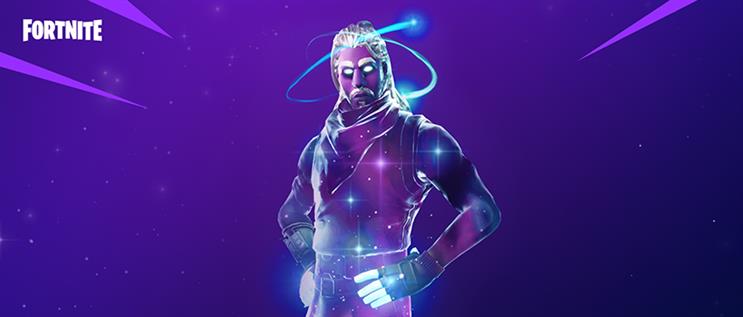Esports, the world of competitive video-gaming, is a booming industry. The 2018 League of Legends World Championship final attracted almost as many viewers as the Super Bowl. But where does experiential activity fit in?
Last year, Samsung teamed up with Epic Games – which developed the hit game Fortnite – to offer the Fortnite Galaxy skin exclusively to owners of the Galaxy Note 9 or Tab S4. The skin was linked to users’ Epic Games accounts, where it quickly became the envy of the Fortnite community.
The activation continued in March with a partnership between Samsung, Fortnite and Korean pop group iKon for the release of Fortnite’s "Ikonic" skin, based on one of the band’s members. Available to Galaxy S10 phone owners, the tie-up was promoted at the Samsung 837 experience store in New York, where fans had the chance to meet members of iKon and try out their gaming skills in a specially built area. Fortnite is also entering the esports arena big time this year with the inaugural Fortnite World Cup.
The Samsung experience was devised by Wasserman. Jason Banks, vice-president, brands, at the agency, says the integrity of the gaming experience is key for those looking to capitalise on esports' experiential potential.
"There is a difference between the casual gamer and the competitive side of the space," Banks explains."Not everyone who plays a game like Fortnite or Call of Duty is fawning to stream and be a global competitive force; plenty of people still play just to have fun."
He adds that it’s also important to view esports as equivalent to the "vastness" of traditional sports. Just like sports fans differ by sport, gaming fans differ by game or genre, so understanding the audience attending your event is key to provide activations that speak to those "on site".
Automotive brands
Other brands taking experiential to the next level within the esports environment include automotive players such as Kia. In January, it became the main partner of the League of Legends European Championship, aiming to engage with esports fans and attract younger car buyers. Activity will include digital content featuring prominent League of Legends players and "casters" (online gaming commentators), alongside promotional booths at League of Legends European Championship stadium events.

Audi, meanwhile. has forged a partnership with Spanish esports team Origen, while Mercedes-Benz kicked off a one-year tie-up with Chinese esports organisation Royal Never Give Up last year, with part of the deal involving RNG players appearing at Mercedes events.
While there is no shortage of brands sponsoring esports events, the experiential side remains a challenging space to play in, according to Rory Byrne, business director at Imagination.
"The draw of gaming is often the experience of interacting with a game’s unique environment and feeling that it is unique to the player," he says. "However, brands enter the sector with a different motive. Their focus is not necessarily player experience and intrigue, but ultimately to create desire in their product, and it has potential negative effects if the brand is unwilling to compromise to an extent."
Creating game worlds
A balance needs to be struck between building an exciting and immersive experience for those attending events and ensuring that this does not detract from what the visitors have turned up for.
"The experience should elevate the world the game is built within and not distract from it," Byrne adds. "Crafting the integration between a game’s unique world and the user experience is key. The potential to allow users to experience and live in it is huge and this has massive potential for brand immersion and loyalty.
"However, it has to be done subtly. It has to allow for things living naturally as part of the story. Perhaps it will be a new age of product placement."
Nike is another big brand to approach the esports sector, albeit in a more subtle way. Its four-year sponsorship deal of the League of Legends Pro League in China, announced in February, highlights how a natural synergy can be forged with gaming. The brand’s apparel will be worn by the squads and be available to purchase.
While Nike has not revealed any specific experiential marketing plans, Nic Cooper, former non-executive chairman and founder at Sledge, says the opportunity to engage and interact with fans cannot be underestimated.
He also points to the growing popularity of the Fifa eClub World Cup, whose events can easily fill arenas such as The O2.
"It will provide an obvious and genuine home for multiple brands from apparel to nutrition, electronics and beyond," Cooper says. "Esports in particular will lead the way, where you have football clubs such as Manchester City sponsoring an egamers team; anyone who has witnessed its Cityzens matchday fan area at the Etihad Stadium will know how experiential can work hand in hand with the main event and give fans an amazing experience."
Neil Davidson, managing director at behavioural communications agency HeyHuman, thinks that for esports to get to the next level, the industry will need to find new ways of monetising the platform.
"We need to start identifying consumer needs," Davidson says. "What will enhance their egaming experience and what are they willing to spend money on? In the future, we might very well see products from the world of traditional sports bleeding into the egaming sector.
"Egamers in the future may be willing to buy team kits or skins for their avatars, in the same way that football fans raced to the shops to buy the latest Manchester City kit in the summer. Perhaps we’ll even see season tickets being sold for a series of egaming tournaments."


